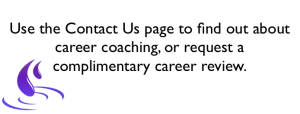 Many job seekers feel uncomfortable when asked salary questions in a job interview. I had a phone call today from a friend who is currently searching for a new job, and he told me he landed two interviews last week. That’s excellent news! And then the question arose: “The recruiter asked me about my salary expectations. What’s the proper answer to this question?”
Many job seekers feel uncomfortable when asked salary questions in a job interview. I had a phone call today from a friend who is currently searching for a new job, and he told me he landed two interviews last week. That’s excellent news! And then the question arose: “The recruiter asked me about my salary expectations. What’s the proper answer to this question?”
It is a fact that interview questions like “what are your salary expectations?” are considered to be among the difficult ones. You really have to be careful because your answer could either lead you to miss a good opportunity if the wage you propose is too low, or even miss the job if it’s too high. Other trick questions like this could be “what was your last salary?”, or “would you be willing to take a lower pay than what you were getting in your previous job?”.
.
So, how should you answer salary interview questions?
.
Research
First of all, it is vital to do your research before the interview. This means that you have to learn as much as you can about the company including its compensation policies. A web search will help you with this if you do not know any of the employees in person. In addition, Ellen Gordon Reeves, the author of ‘Can I Wear My Nose Ring to the Interview?’ proposes to go straight to the source: “You can call the HR department of a company and simply say, ‘I saw a job advertised at your company and I’m wondering what the entry-level salary is for this department.’”
Of course, I am assuming here that you have already done your homework, and you know what salary to expect for this position according to the industry, your location, skills and experience.
.
Diplomacy
Unless you are a psychic, you can’t possibly know the exact figure the recruiter has in mind. That’s why it is a good idea to give a diplomatic answer ‘throwing the ball back’ to the interviewer. Don’t be too open though (like “I’m willing to take whatever you give”), as you don’t want to sound weak.
A good example could be saying that you need more information about the job responsibilities before discussing salary. You could also ask the interviewer back what the company typically offers to someone with your qualifications, or what is budgeted for this position.
Always remember that what we say is not the only important thing. How we say it is quite significant as well. Your body language, your voice, your pauses and the way you talk are crucial to communicate your message. You don’t want to sound aggressive, right?
.
Set a range
If they insist on a figure from you, it is best if you reply with a range. This will give you room for negotiation in case what you have in mind does not agree with what the company is offering. This is where all the research you have done becomes handy.
You could say something like “Based on the industry rates, my skill-set and previous experience, my requirements are in the $55.000 – $60.000 range, depending on the scope of work. Is that the range you had in mind?”
.
Room for negotiation
Supposing you did your homework, the range you proposed was an acceptable one. Nevertheless, you will probably be offered a salary closer to the low end of your range. That is why it is wise to structure your proposal in a way that there is room for a counter-offer, in case you are not happy with the compensation the recruiter suggests. Lisa Gates in her article on The Daily Muse explains perfectly how to wiggle.
Negotiation conversations are made up of anchors (putting a number on the table), counteroffers, and concessions. Simplifying wildly, you need to know two things—your target (what you really want) and your reservation point (your walkaway or resentment number).
Remember to never try to negotiate anything until there really is an offer on the table.
Also, don’t forget that salary is not the only aspect of a job offer. Bonuses, employee benefits, or even share percentages are also parts of the package. If the benefits are more than you had expected, maybe a slightly lower salary isn’t so bad. On the other hand, if they are less you could use that as a justification for a higher salary.
.
For further reading on how to answer salary questions in a job interview, I have two more articles for you:
– The first one is by Aimee Bateman on Undercover Recruiter
– The second one, on BioSpace, by Carole Martin, provides some really good examples of Q&A’s
.

